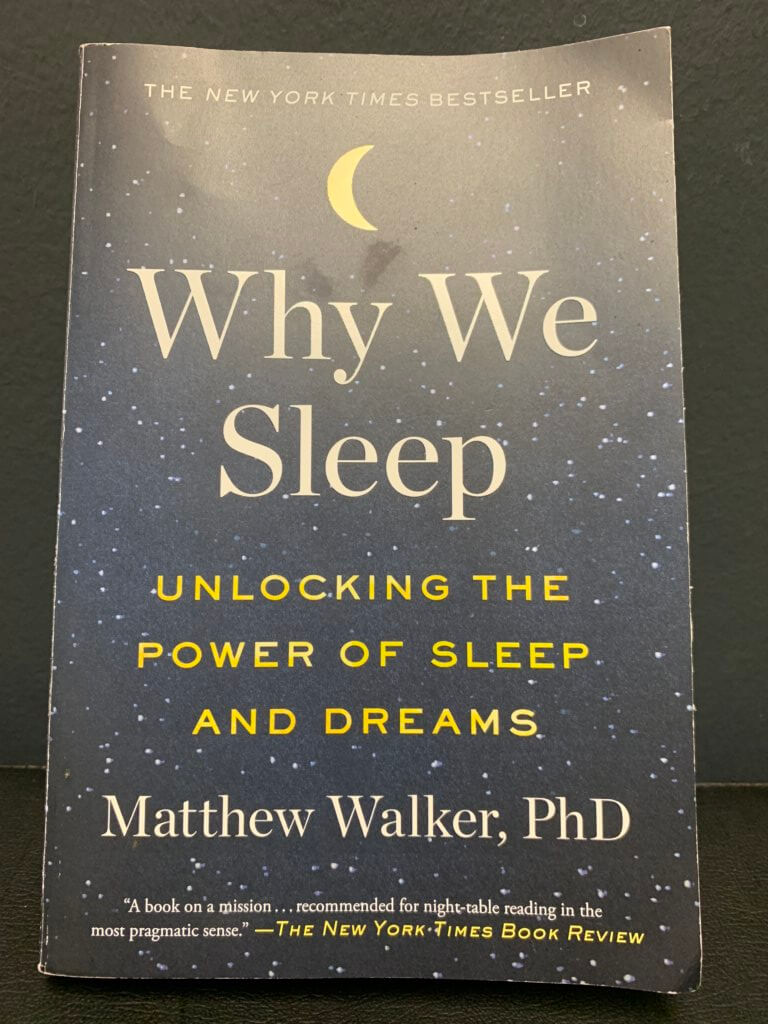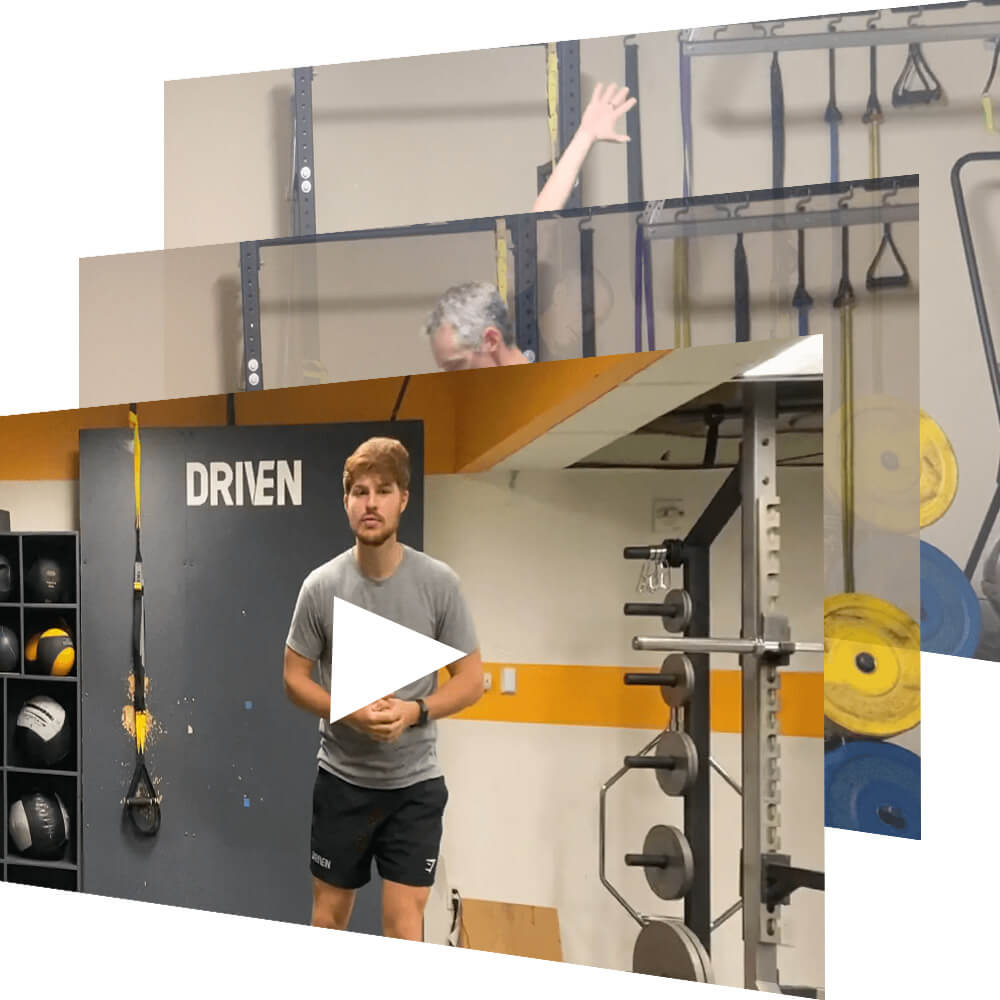How Much Sleep Do You Need?

I’ve been a short sleeper for most of my adult life. From my time as an intern in the collegiate strength and conditioning world to my current profession as a personal trainer, I’ve always started my day by 6am at the latest. My current morning commute is 25 minutes. And I am a breakfast eater. You don’t need a strong math game to figure out that I’m getting less than 8 hours of sleep.
It’s funny – I think I intuitively knew (and felt) the consequences of my short sleeping but until now have chosen to ignore it. I was clearly guilty of the “I’ll sleep when I’m dead” mindset and felt an air of superiority over those who couldn’t rise as early as me.
That has now changed. Having recently read Dr. Matthew Walker’s “Why We Sleep: Unlocking the Power of Sleep and Dreams” (as well as some of the related research), the fallacy of this way of approaching sleep has become clear.
Walker builds a pretty convincing case that our societal lack of sleep is having a devastating impact on our health, life expectancy, performance, productivity and safety. While I think that there are significant limitations in the current research and there is still much to learn, I am convinced that sleep is probably far more important than I’ve given it credit for. And while I’m always wary of overly simple “quick fixes”, I’m convinced that there is very little downside and tremendous upside to a good night’s sleep.
Short sleeping (getting less than the recommended 8 hours) like I’ve done for years has negative impacts on literally every part of our internal environment.
Here are a few of those items that jumped off the page at me:
- Get behind the wheel of a car when having slept just four hours or less the night before, and you are 11.5x more likely to be involved in a car accident.
- Sleep deprived subjects showed over a 60% amplification in emotional reactivity. You know this feeling if you’ve ever overreacted to a situation after a poor night’s sleep.
- Inadequate sleep can impair the brain’s ability to clear metabolic debris that build up while awake (including the amyloid and tau proteins associated with Alzheimer’s disease), increasing the odds of developing Alzheimer’s later in life.
- In subjects directly exposed to the flu virus, susceptibility to becoming infected correlated directly to the amount of sleep they were allowed. Those who slept more than 7 hours were significantly less likely to get sick than those who slept less.
- A single night of sleeping 4 hours decreases circulating levels of natural killer cells by 70%. Why is this important? Natural killer cells are a part of your immune system that destroys foreign entities such as malignant tumors. This reduction comes after ONE NIGHT. To extend this point, studies have shown a 40% increased risk of developing cancer in people sleeping less than 6 hours per night as compared to those sleeping 7 hours per night or more.
- Adults 45 years and older who sleep less than 6hrs per night are 200% more likely to have a heart attack or stroke in their lifetime.
- Short sleeping increases circulating levels of hunger-inducing hormones and decreases concentrations of satiety signaling hormones, leading to more hunger and greater food intake.
- Sleeping 5 hours per night for one week decreases testosterone in men similar to 10-15 years of aging.
- Sleeping less than 6 hours per night decreases aerobic output and time to exhaustion on an endurance test by 10-30%.
- In a study of young athletes across a competitive season there was a 73% chance of injury in athletes who averaged 6 hours of sleep per night vs. a 18% chance of injury in those who averaged 9 hours of sleep.
- School districts that pushed back school start times noted an increase of over 100 points on SAT scores and a decrease in traffic accidents by over 60%. Since adolescents have a forward-shifted circadian rhythm that means they don’t fall asleep as early or wake as early, requiring them to catch a 6am bus would be equivalent to our catching a 4am bus every morning after not going to bed until 11pm.
- Perhaps equally horrifying is our medical system, where residents working a 30 hour straight shift commit 460% more diagnostic errors in the ICU than when well rested.
Pretty strong case for sleeping more if you ask me. Put more bluntly, not sleeping enough will make you:
- Weaker
- Dumber
- Sicker
- Fatter
- Less energetic
- More emotional
- Hungrier
- Less muscular
- Worse at your job
- Less insulin sensitive
- More stressed
- More likely to die, sooner, and in poorer health
So what can we do about it? Here are some of Walker’s recommendations I’ve tried to implement into my own sleep program:
- Go to bed at the same time and wake up at the same time every day. This is easy for me during the week but tougher on the weekend. Where I’ve settled is on letting myself sleep until I wake up with no alarm on the weekend and trying to limit how late I stay up.
- Create an environment that lowers your core temperature. Set the thermostat lower (they recommend 65 degrees!). I’m not quite there, but trying to push the thermostat lower without my cold-natured spouse knowing.
- Cut the technology in bed. One of my bad habits was reading on my phone while in bed getting ready to go to sleep. What was I reading? Time wasting crap. So I’m finishing whatever I need from my phone before getting in bed. Notifications off. Phone face down on the nightstand.
- Drink less water in the hour before bed. If I can avoid the 3am trip to the bathroom that’s ideal.
- Limit light exposure prior to going to bed and sleep in total darkness. Traditional incandescent lights are bad (they reduce melatonin release significantly), but the blue light emitted by phones and tablets is significantly worse. Not only can they make it harder to fall asleep by delaying melatonin release, they also decrease the amount of REM sleep you get, so the quality of your sleep is diminished. So again, turn the phone off and dim the lights!
- Cut the nightcap. Alcohol is a significant suppressor of REM sleep and fragments sleep, making it less restorative. This is not typically a problem for me, but I’m more likely to hydrate, slow down consumption, and stop earlier on those occasions when I do drink.
- Avoid caffeine and nicotine in the afternoon and evening. Not a problem unless we stop at Whataburger on a road trip and I have to get a Dr. Pepper.
- Don’t nap after early afternoon. Sleep depends partly on a building of “sleep pressure.” This is offset by napping, so a late afternoon or early evening nap can make it harder to fall asleep. This has been a rule of mine on Sunday afternoons for a long time, and now applies every day.
- Get some daylight exposure, especially early in the morning. This is a weak spot for me that I have yet to figure out when I am in the gym early. The bright lights in the gym help but are a poor substitute.
- Don’t lie in bed awake. If you’re having trouble falling asleep, get out of bed and do a relaxing activity until you feel sleepy. I’ve been trying this and have found it helpful.
- Be active during the day (my rule). Get a workout in if possible, even if it’s a short one.
*One interesting note – There appears to be some dissent among researchers as to whether or not there is an upper limit to the amount of sleep we should get. Some insist that sleeping more than 9 hours per night begins to show negative impacts on health markers while others say that no such relationship exists, and any correlations are due to underlying disease states. More research is needed to form a consensus, but 8-9 hours appears to be a pretty safe bet.
SHARE IT

